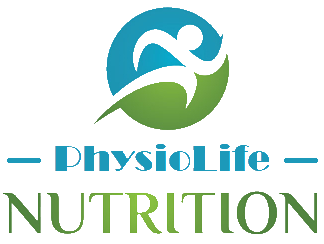Books on Health; Exercise That's Hot and Slow, New York Times
May 13, 2003, Tuesday

BOOKS ON HEALTH; Exercise That's Hot and Slow
''Power of 10: The Once-a-Week Slow Motion Fitness Revolution,'' by Adam Zickerman and Bill Schley. HarperCollins, $24.95.
''The Slow Burn Fitness Revolution,'' by Fredrick Hahn, Dr. Michael R. Eades and Dr. Mary Dan Eades. Broadway Books, $25.
Exercise regimens that promise to get the out of shape into better shape than an athlete and in shorter time continue to find their way into books, rivaling in repetition, imaginative spin and new packaging only those on diets, natural medicines and meditation techniques.
Perhaps these books exist because millions of Americans are obese, or at least less fit than they should be. Or maybe it is because of the proliferation of personal trainers, gyms and fitness centers, where once there was but the local Y.M.C.A., and specialists capable of discussing in lay terms arcana like metabolic enzymes, hip adduction and glycemic indexes.
These two books aim to help people lose weight, build muscle mass, strengthen bones and improve flexibility -- all on schedules that are less labor intensive and time consuming. The ''Power of 10'' program takes 20 minutes once or twice a week, and the ''Slow Burn'' 30 minutes a week. One writer, Adam Zickerman, owns fitness centers in the New York metropolitan region. Another writer, Fredrick Hahn, runs one in Manhattan. Each has also chosen the same buzz words for his program: ''slow,'' ''fitness'' and ''revolution.''
The two books stress safety with exercises that lower the risk of injury and exhaustion. Mr. Zickerman's program is essentially training with weights, ''the way to go for young and old alike.'' What may differentiate it from some other similar regimens is the slowness of the movement of the weights. Most lifters, Mr. Zickerman points out, ''throw their weights up and down with a jerking high-force motion.'' His method slows movement to a 10-second cadence, 10 up, 10 down. ''We don't stop at the top or bottom, so our muscles sustain a constant steady load for about five to eight repetitions,'' he writes, adding that such an exercise ''fires the muscle fibers'' deeply and builds lean muscle mass.
By comparison, he adds, aerobics ''builds virtually none.'' He makes a convincing case. Lean muscle mass, he says, requires the burning of energy. It has to burn calories to sustain itself. The more of it versus fat, the more calories one burns, even while sitting, relaxing and sleeping. ''Three extra pounds of lean muscle burns about 10,000 extra calories a month, just sitting around,'' he adds. Moreover, since jogging, say, burns 100 calories a mile and a typical aerobic workout 100 calories every 15 minutes, ''having three extra pounds of muscle burns as many calories as running 25 miles a week, or doing 25 aerobic workouts a month without leaving your couch.''
Mr. Hahn's program, which combines exercise science, medicine and weight training, is a collaborative effort with two ''metabolic medicine'' physicians who wrote a best-seller, ''Protein Power'' (1996). Power is again applied in the final chapter, ''The Slow Burn Power Eating Plan,'' a regimen that offers little more than a mantra-diet rich in protein, adequate in ''good quality fats and oils,'' fresh fruits and colorful vegetables and restricted sugars and starches.
The ''secret to building strength quickly'' is exercising slowly ''and minimizing the effects of momentum and gravity.'' Slow, the authors point out, may sound easy, but ''the focused slowness that eliminates momentum actually forces your muscles to work much harder.'' As in Mr. Zickerman's program, the crucial element ''is that each exercise must be performed with slow, precise repetitions, in perfect form, with a weight heavy enough to take the muscles being worked to total fatigue in just a few repetitions.''
© 2002 The New York Times Company
